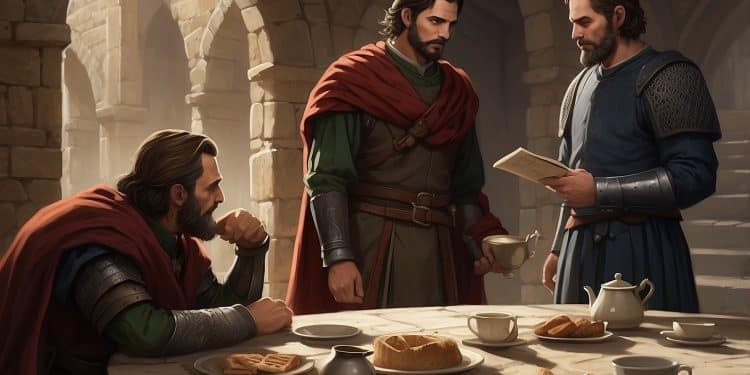There is no lack of dynamic characters created by Shakespeare, but among them, who is Angus in Macbeth? Angus is the thane and the representative of a Scottish nobleman. He is loyal to the rightful heir of the throne and plays a key role in supporting Malcolm, as he is the legitimate king. His first appearance in the play is when he delivers the news to Macbeth that he is now the Thane of Cawdor. Through Angus Shakespeare shows the political unrest in Scotland during the medieval period. His quote,
“Now does he feel
His secret murders sticking on his hands” (Act 5, Scene 2).
Highlights his role in revealing Macbeth’s restlessness and guilt. Although Angus is a fictional character, his role shows the shifting political landscape of medieval Scotland. Nobles like Angus stand against Macbeth’s tyranny, and eventually, Macbeth has to pay the price by giving his life.
Who is Angus in Macbeth?
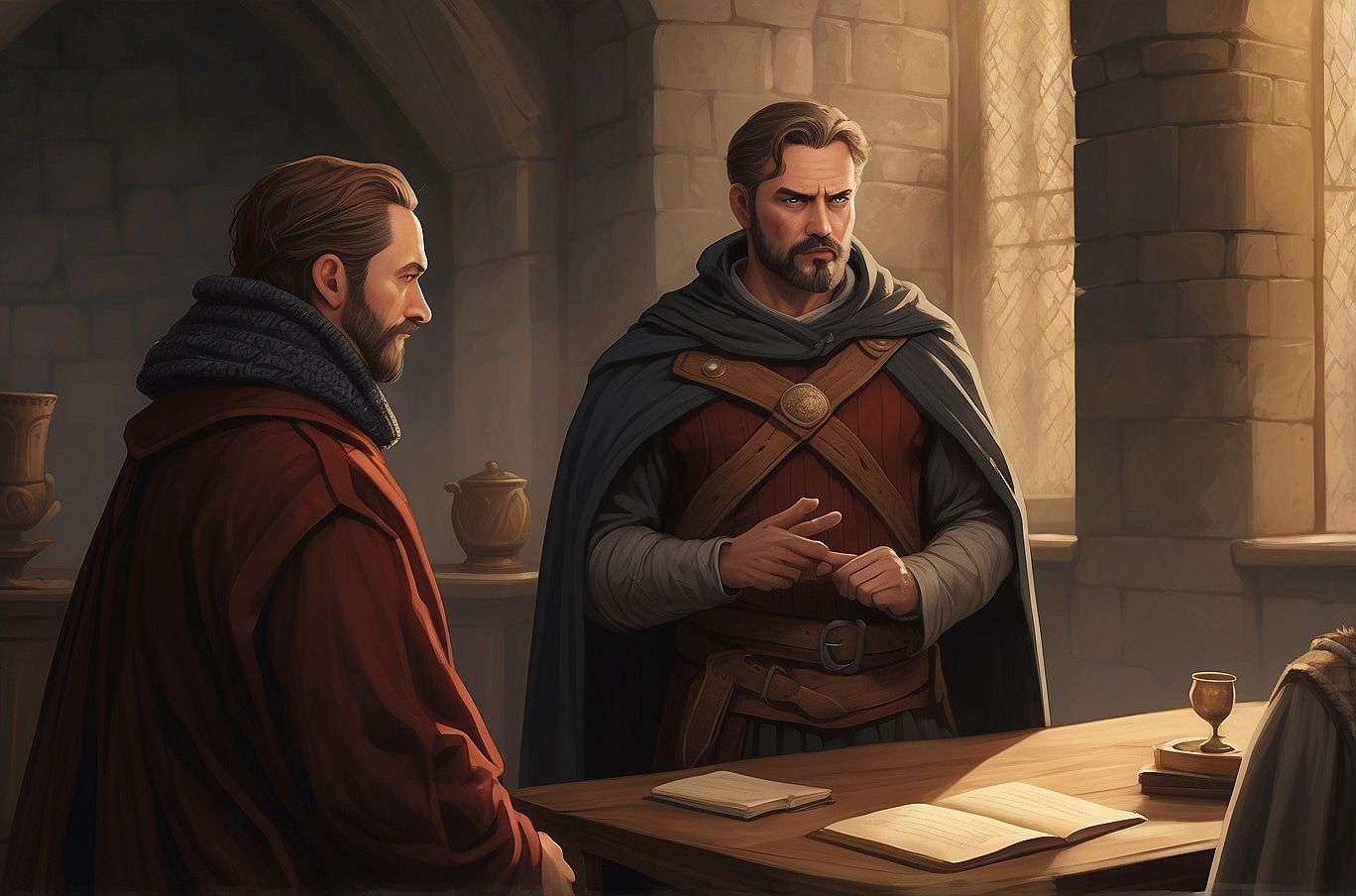
Angus is a minor character in Macbeth who is a nobleman and Thane. His role in the play is significant as he collaborates with other noble characters, such as Lennox and Ross. His chief duty in the play is to deliver messages and share his insights about the political strife in Scotland. His presence in the play is marked by his loyalty to the lawful heir and his opposition to Macbeth’s role.
Shakespeare often uses historical figures to carve out new characters; however, in this case, he does not take Angus from any historical characters. Angus in this play represents treacherous medieval Scotland.
Angus’s presence provides a sense of authenticity in the middle of conflicts and chaos. His actions develop the themes of loyalty and honor. He reminds us of the consequences of unchecked ambition.
Role of Angus in the Play
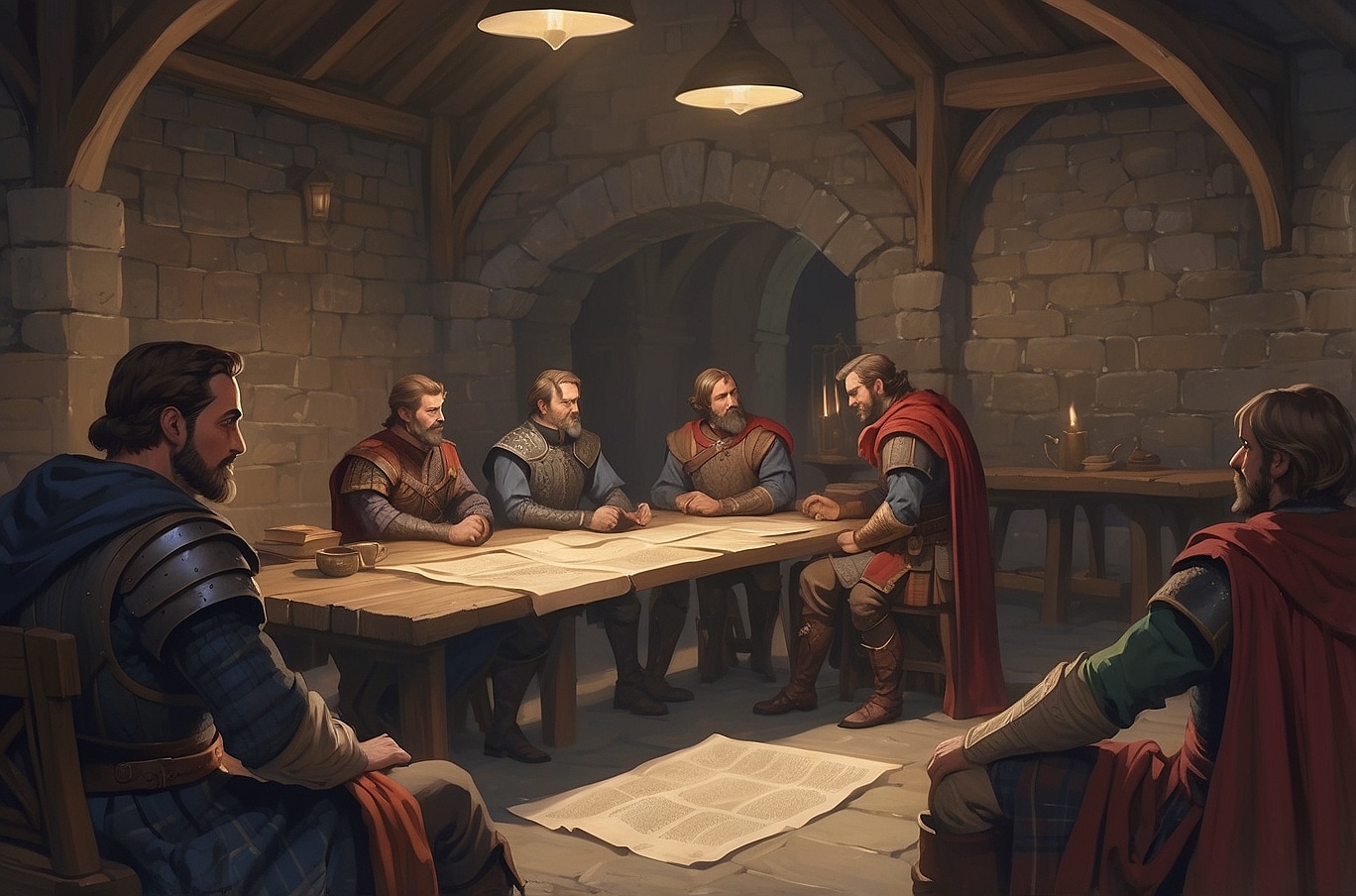
Serves King Duncan Faithfully
Angus serves as the nobleman of King Duncan and he is loyal to him throughout his reign until the day Macbeth kills Duncan. He does honorable service as a nobleman by fulfilling his duties to the king. Angus delivers the news of Macbeth becoming the Thane of Cawdor to Macbeth under Duncan’s directive, showing his obedience and importance to the king.
Supports Malcolm
Angus is only loyal to the legitimate ruler of the throne. After Duncan is murdered, he remains loyal to Duncan’s son, Malcolm. He focuses on restoring order by joining other nobles and helping Malcolm restore the throne.
Appearances of Angus
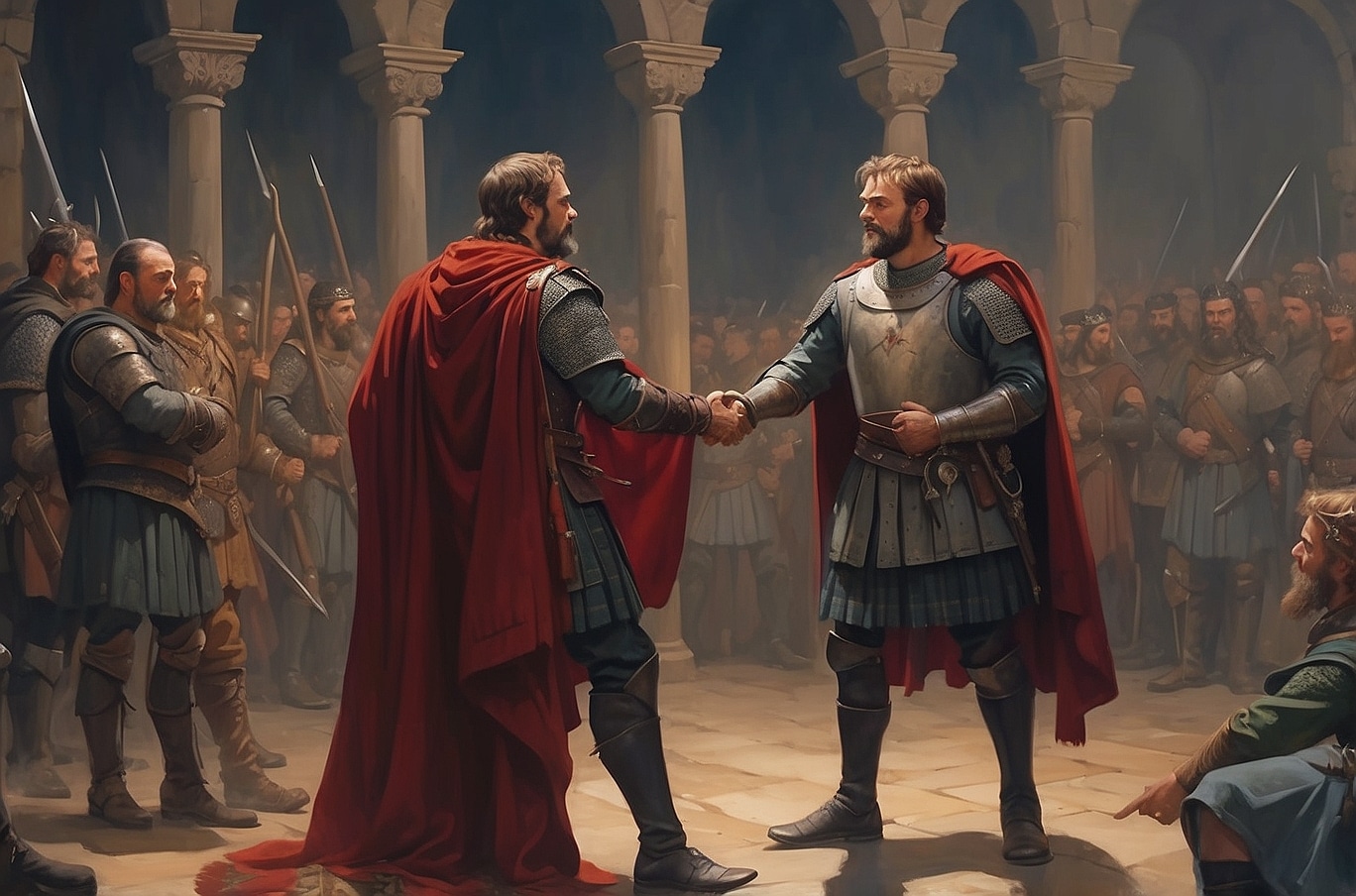
There are multiple scenes where Angus appears and makes a significant impact. Here are some examples of scenes featuring Angus:
Act 1, Scene 3
Angus, along with Ross, goes to Macbeth to inform him about his new title:
“He bade me, from him, call thee Thane of Cawdor.”
He brings the news from the king, and this establishes Angus as an important messenger and his involvement in the play.
Act 5, Scene 2
Later, he appears in another scene where he talks about the oppressive rule of Macbeth and how the nobles should join Malcolm to force Macbeth from the throne. He says,
“Near Birnam Wood
Shall we well meet them; that way are they coming.”
This shows his fighting spirit and is a clear sign of his clarity of mind. He plays an active role in the rebellion and makes a significant contribution to it.
Act 1, Scene
Angus is also a great narrator. To King Duncan, Angus describes the heroic deeds of Macbeth and Banquo in the battle. His vivid scene description sets the stage for Macbeth to get recognition and reward.
Act 5, Scene 6
Angus actively participates in the battle against the forces of Macbeth, as hinted by his preparation. His presence in the rebel forces shows how committed he is to overcoming Macbeth’s illegitimate rule in Scotland.
Angus with other Major Characters
Loyal to Duncan
Angus is loyal to Duncan from the beginning, which is evident through his actions and words. He supports King Duncan’s authority and decisions, contributing greatly to the stability of the Scottish nobility. Angus fulfills every command given by Duncan, as evidenced by his actions in conveying a message to Macbeth as per the command of King Duncan.
Supports Macduff
After his realization that Macbeth is a tyrant, he aligns himself with Macduff, whom he thinks is the rightful heir. He contributes greatly to the rebellion against Macbeth by organizing with the nobles and this shows how he is committed to the right cause. He encourages other Scottish noblemen to take action and join forces with Macduff to overthrow the tyrant.
At first, Angus supports Macbeth’s rise to power, accepting him as the king. This acceptance is based on the hope that Macbeth will rule justly. This is evident when he interacts with Macbeth for the first time.
However, when he witnesses firsthand Macbeth’s tyranny and ruthless nature, he becomes disillusioned. He sees the evil side of Macbeth and how he murders his opponent, making Angus question Macbeth’s rule. He changes his heart and gives allegiance to Macduff. His famous line in Act 5, Scene 2, shows his transformation:
“Those he commands move only in command,
Nothing in love: now does he feel his title
Hang loose about him, like a giant’s robe
Upon a dwarfish thief.”
This comment made by him showcases the tyrannical nature of Macbeth’s rule, and now he wants out of Macbeth’s rule. This stand taken by Angus shows his commitment to justice and proves his role as a man who values integrity over anything else.
Symbolic Role of Angus
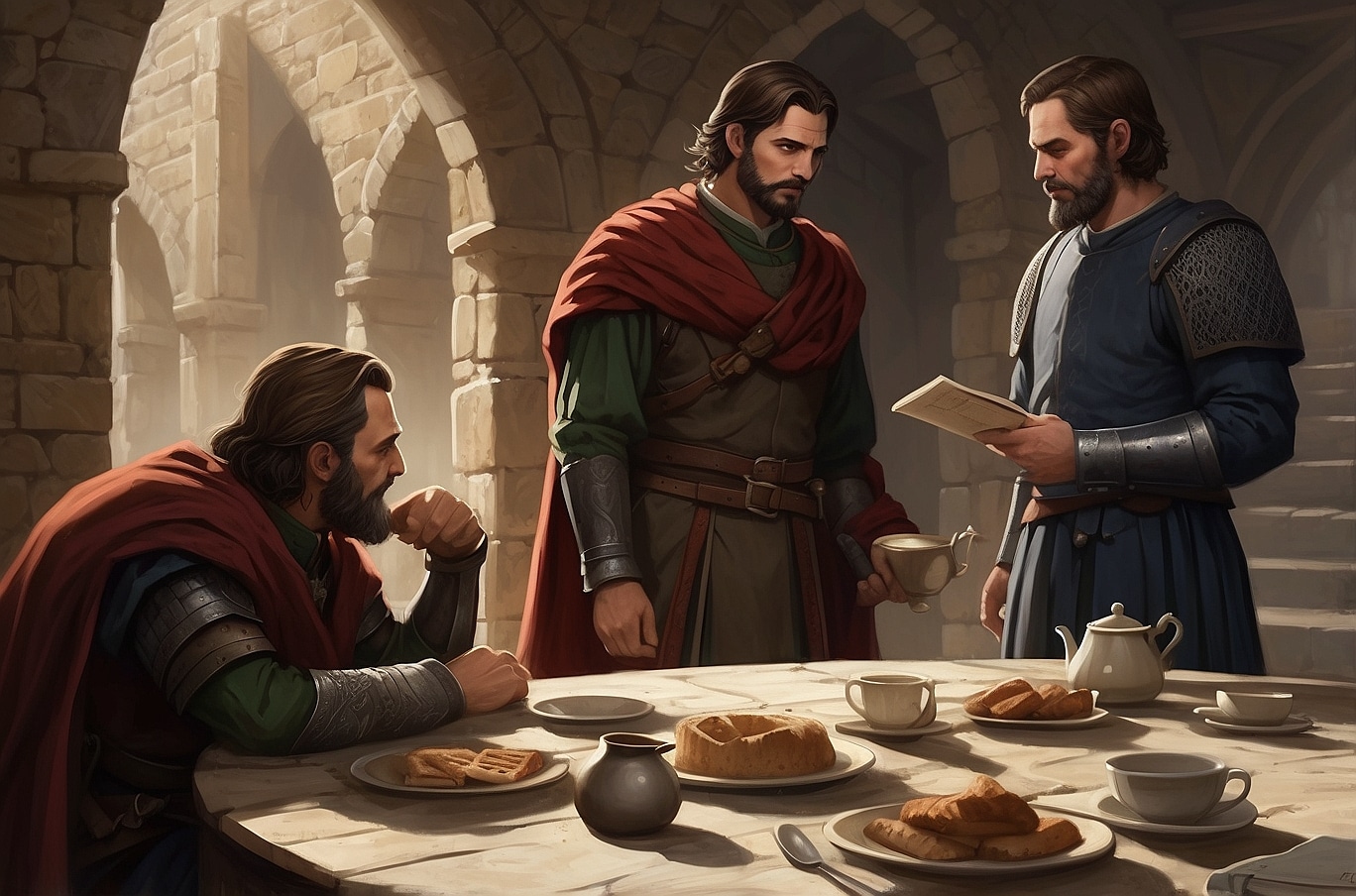
Shakespeare is a master of conveying messages through symbols and he uses different symbols in his plays like witches, birds, and so on. Angus in Macbeth is also a symbolic character, as he stands for loyalty and moral righteousness. Unlike Macbeth, Angus’s action is driven by his duty to his nation. Angus is like a moral compass who shows moral values and takes part in actions to regain the rightful heir to the throne.
Angus’s Contribution to the Theme
Angus is an honorable man, as he stands for the loyalty and interests of the people of Scotland. His support for the legitimate king in Duncan and later Malcolm underscores his dedication to legitimate authority. He has a moral clarity that many politicians lack. Macbeth’s treachery and weak character are the complete opposite of those of Angus.
Restoring order
Angus’s role in restoring order is very important. His commitment to this cause reflects what the common people want. He contributes to restoring stability in Scotland by forming a coalition with people who have the same vision as him. In the end, he helps establish the right lineage.
Contrast with Macbeth
The moral lesson that we can take away from Macbeth is the contrast between Angus’s integrity and Macbeth’s ruthless ambition. Ultimately, the rightful side prevails, ending the rule of tyranny. Shakespeare creates Angus to show his audience the difference between right and wrong and to show who is triumphant.
Other roles played by Angus
Angus plays a vital role in advancing the narrative of the play. He provides important information and makes critical decisions in crunch moments that shape the course of the event. His perspective helps the audience relate to the story.
Character development
Angus is a secondary character, but his development throughout the play reflects the political change in Scotland. His transformation shows the deciding power of integrity and what an unjust rule can do to the ruler.
Final thoughts
So, who is Angus in Macbeth, actually? Although he is a secondary character, he plays a pivotal role in the political dynamics of the play. His words and actions in the play provide us with a narrative. Angus plays the role of a resistance, upon whose guidance the nobles of Scotland support the rightful king, the son of Duncan. Through Angus, Shakespeare conveys the play’s motive that true leadership is all about justice and honor.

